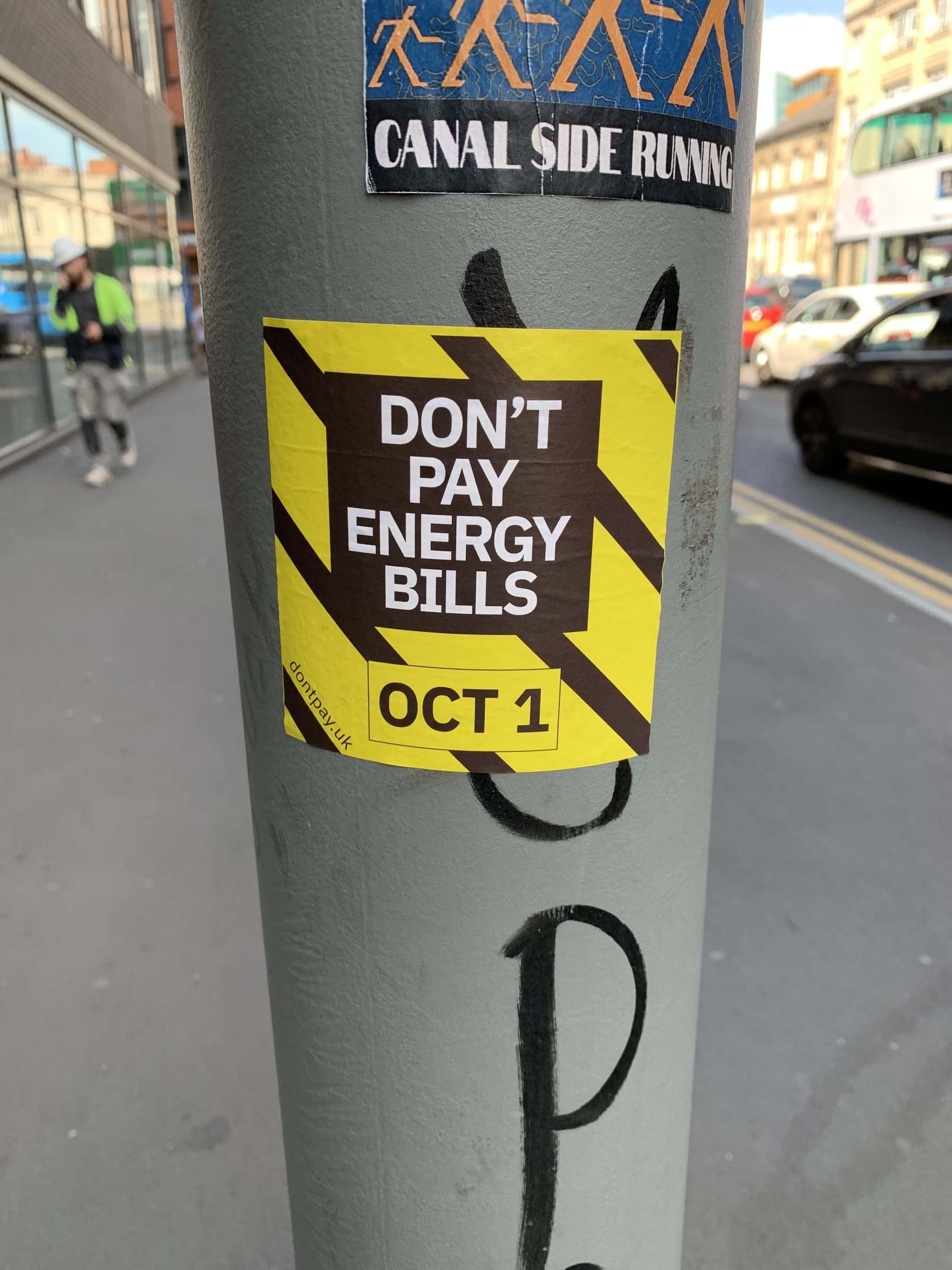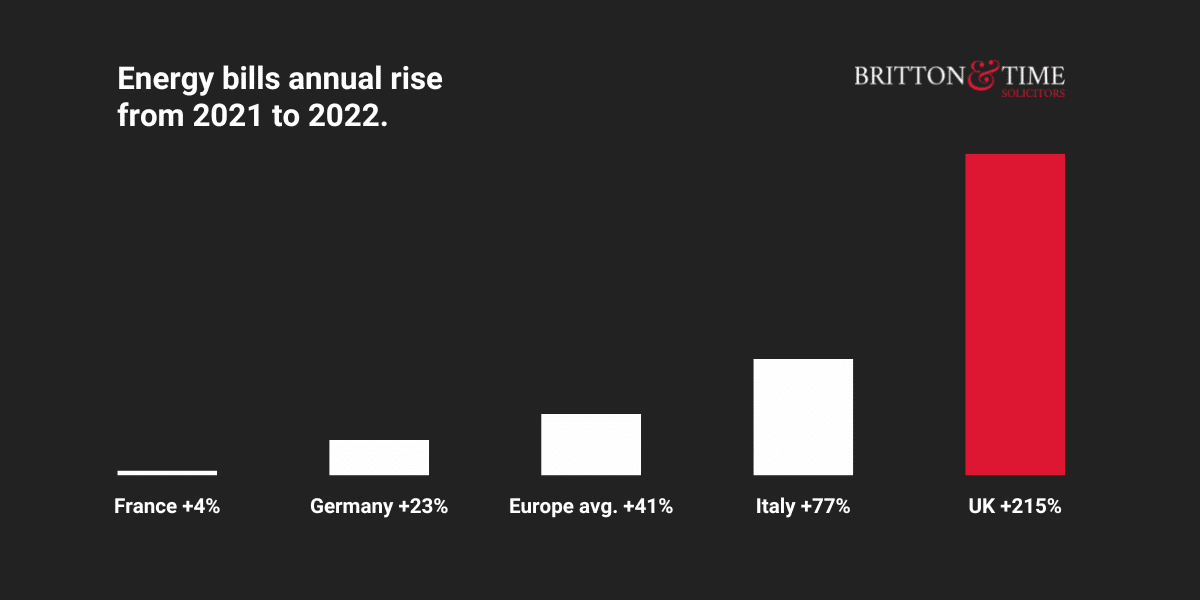In this article

If you’ve been keeping up with current affairs, you will be aware of Don’t Pay UK and their proposals that people cancel their energy direct debits on 1 October. This is in response to rising energy price caps that are coming into effect, which present a real issue to many working-class households.
This article will explore the movement, the overarching UK energy crisis, and whether you should join the cause to cancel your direct debit. Furthermore, it will look towards the future of energy prices and how you can support yourself over the coming months and beyond.
Energy crisis overview.
Gas and electricity bills are rising across Europe, with the continental average increase at +41% between 2021 and 2022. UK energy prices in this timeframe have risen by 215%. This rise will continue with the energy bill increase on 1 October. This means that a typical UK household’s energy bill is rising by 27% from £1,971 to £2,500. This ‘price guarantee rate’ is set to last for 2 years.
These are some of the causes that have led to this energy price cap rise:
- Russia’s invasion of Ukraine
- Overconsumption
- Overpopulation
- Poor infrastructure – the recent heatwave reduced the efficiency of sustainable power sources
- Unexplored renewable energy options
- Delay in commissioning of power plants
- Energy wastage
Who are Don’t Pay UK?

Should changes not be made prior to 1 October when the energy price cap is set to be raised, campaigners are expected to cancel their direct debits. These widespread direct debit cancellations will only go ahead should the campaign reach 1 million pledges.
Along with this, Don’t Pay UK are campaigning for the end of pre-payment energy meter installation enforcements, with those wishing to keep their meter given the cheapest available tariff. They are also campaigning for the introduction of an emergency social energy tariff, which would introduce lower tariffs to working-class families along with community assets, such as schools, religious buildings and community centres.
What will happen if you cancel your energy direct debit?
Gas and electricity bills are also known as ‘priority bills’, meaning there could be severe consequences associated with their cancellation. Careful consideration should therefore be taken over whether you cancel your direct debit to support the movement. Energy companies have several routes they can take to regain their lost revenue, should the strikes go ahead.
- Forced installation of a pre-payment meter
- Pass your debts on to a debt collection agency
- Take money out of your wages or benefits via a court application
- Send bailiffs to your home
- Cut you off from energy supply as last resort
What help is available?

These government and energy provider-led schemes are a much safer method to ensure that you are able to heat your home this winter.
- Energy bills support scheme – The government will take £400 off of every household’s electricity bill. This comes in 6 instalments between October 2022 and March 2023.
- Council tax rebate – If you pay council tax and your home is in council tax bands A to D, you can receive £150 from the council to help pay your energy bills. Check to see if you are eligible on GOV.uk.
- Warm house discount scheme – If you pay council tax and your home is in council tax bands A to D, you can receive £150 from the council to help pay your energy bills. Check to see if you are eligible on GOV.uk.
- Winter fuel payment – If you were born on or before 25 September 1956, you are eligible to receive up to £300 as a ‘pensioner cost of living payment’. This is an annual payment that should commence once you reach state pension age, but you may need to apply on GOV.uk.
Will the energy price cap decrease?
Simply put, this is unlikely. Financial forecasts state that the price cap will rise by 30% to £4,649 by January 2023, and a further 14% to £5,341 by April 2023. These levels will remain high going into 2024 – an alarming fact that is a key contributor to the Don’t Pay UK campaign and their threats of cancelling energy direct debits.
Despite this, the government has begun consulting on changes that could allow for cheaper energy rates when demand is low or when the weather is increasing production. The government will also review whether fossil fuel prices and renewable energy prices can be separated. This would result in homeowners paying a reduced rate when using energy from lower-cost renewable sources.
Potential future developments.

This would be carried out through establishing a cooperative where each member jointly owns the organisation – as opposed to a capitalist model. This group will then install renewable power systems, buy the energy, and get a share of the profits. Currently, around 1 million European citizens are involved in creating their own energy, which could rise to 260 million by 2050.






0 Comments